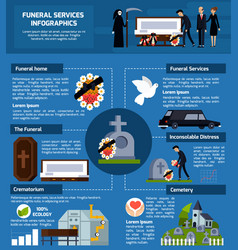Discover The Fascinating Development Of Catholic Colleges And Their Profound Influence On Education-- Could Their Customs Hold The Key To Future Discovering?
Discover The Fascinating Development Of Catholic Colleges And Their Profound Influence On Education-- Could Their Customs Hold The Key To Future Discovering?
Blog Article
Post Produced By-Carr Bell
When you think about the background of education and learning, Catholic schools stick out for their ingrained traditions and lasting influence. just click the next website page started as a means to impart faith and worths, however they've adapted extremely over centuries. Today, they play an important duty in shaping not just scholastic success however additionally moral integrity. What's fascinating is just how they've managed to thrive in the middle of transforming social landscapes, raising questions regarding their future relevance and impact.
The Origins of Catholic Education: A Historic Viewpoint
Catholic education and learning traces its roots back over 1,500 years, when very early Christian areas acknowledged the requirement for organized knowing. You'll locate that these areas aimed to hand down their confidence and values with education and learning.
Monasteries and basilica colleges became centers of knowing, nurturing both spiritual and intellectual development. As you delve deeper, you'll see that the educational program often consisted of ideology, theology, and the liberal arts, made to develop well-rounded people.
Over time, the Church developed much more official institutions, guaranteeing that education and learning stayed accessible to all. The commitment to mentor ethical worths and fostering a sense of neighborhood has actually continued via the centuries, shaping the academic landscape and influencing plenty of lives worldwide.
This enduring heritage continues to motivate Catholic education and learning today.
The Development of Catholic Schools Through Cultural Contexts
As cultures developed, so did the duty of Catholic institutions, adapting to the social contexts in which they existed. In https://writeablog.net/britt97donnell/the-impact-of-catholic-education-and-learning-on-the-development-of , these institutions concentrated largely on spiritual direction, yet as areas expanded, they began to include neighborhood languages, custom-mades, and academic requirements.
You would certainly see that Catholic institutions usually became facilities for social communication, fostering a feeling of belonging amongst trainees from numerous histories. In several areas, they attended to societal problems, such as hardship and discrimination, by providing obtainable education for all.
As you discover different cultures, you'll see just how Catholic institutions have actually moved their curricula and mentor methods, showing the values and challenges of their settings while holding to their foundational mission of belief and scholastic excellence.
The Modern Role and Impact of Catholic Schools in Society
In today's globe, Catholic institutions play an essential function in shaping not simply the academic landscape, however additionally the more comprehensive neighborhood.
https://www.daytondailynews.com/news/historical-dayton-church-celebrates-140-years/OZZXS6PQ6BFRJKUVGTQHL5QMA4/ 'll find that these institutions highlight worths like respect, empathy, and social justice, promoting well-rounded people who add favorably to society. By concentrating on academic quality and ethical advancement, Catholic colleges prepare trainees for future difficulties, nurturing critical thinking and management abilities.
visit the following web site offer varied populaces, bridging spaces in access to quality education and learning. Furthermore, you might observe their dedication to solution, encouraging trainees to engage in community outreach and volunteer job.
This blend of education and learning and ethical support makes Catholic institutions a significant force, cultivating responsible citizens that can impact their communities right.
Conclusion
In conclusion, Catholic institutions have a rich background that's shaped their long-lasting influence on society. You've seen how they have actually adapted to various social contexts while keeping a dedication to confidence, values, and academic excellence. Today, they remain to play an important role in cultivating area, advertising social justice, and nurturing liable people. As you reflect on their heritage, it's clear that Catholic institutions remain a powerful pressure for positive modification in the world.
